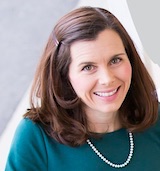20 Things I’ve Learned to Start the Year Strong
By Kasey Short

If you’re a new teacher, or new to the middle level, perhaps you’ll find some useful ideas here – for now or for next year. And if you’re a more experienced teacher with lessons of your own, please use the comments section to share.
1. Contact Students Before School
Email students and copy parents/guardians a few days before school starts to welcome them to your classroom, introduce yourself, provide basic details of what to anticipate on the first day and invite them to reach out to you with questions.
I have found this helps alleviate some of the first-day-of-school nerves because students have an idea of what to anticipate and have some context of who will be their teacher. I always include some fun facts about me like my favorite ice cream flavor or funny story from my summer.
2. Post a Schedule
Starting on the first day, I post a daily schedule that includes plans for the period and homework. This will help keep you and your students on track, provide students with an outline of what to anticipate, and hold you accountable for thinking through all aspects of a lesson. Yes, there will be days when you don’t finish everything on the schedule or you change it mid-class. Consider that a fantastic learning opportunity about flexibility.
3. Early Family Communication
Reach out to parents and guardians early and often. Post or email information to everyone about what you’re doing in class, how they can support their students, and inviting them to reach out with questions. I find that when I am transparent with families and give them information upfront, it builds trust and saves me time answering individual questions. Also start sending individual positive communication about students as quickly as possible so that the parents’ first time hearing from me about their child is something positive.
4. Practice Important Routines
Any important routine that I want to create with students, I spend time in the first week explicitly practicing the routine step by step, discussing the why behind the routine, and getting student feedback on how it works for them.
5. Clear and Consistent Expectations
Middle school students appreciate consistency and are very aware of what they view as “fair.” I have learned that “the fewer rules the better,” so that any rule I do have is something I am willing and able to enforce.
6. Slow Introductions
In the beginning of the year many students are not comfortable enough in the classroom community to share personal information and need time to develop trust in the teacher and their classmates. It’s helpful to start with conversations that allow students choice in what they are sharing and not introduce any deeply personal topics or questions that may bring up things they don’t want to discuss.
Start with fun getting-to-know-you questions like “if you could have any wild animal for a pet, what would it be and why?” or ask about favorite snacks or shows or games to allow students to share without getting personal. Don’t rush the relationship building.
7. Build Community
Take time in the beginning of the year for community building activities and intentionally teach students how to participate in group discussions and interact as a group member. It sometimes feels like it takes too much time – even now, I find myself rushing it and wanting to jump right in to the content. But it is always worth taking time to practice working together, communicating productively, and seeing that we have a shared purpose.
8. Plan for Your Schedule
Find a timing system that works for you and plan your lessons one week out, knowing they might change. My school always starts the first day on a Wednesday, so I like to plan Wednesday to Wednesday. This allows me to always have a plan for Monday and not end up spending my Sunday lesson planning.
I also plan according to things I know are in my schedule to set myself up for success and avoid feeling exhausted. For example, when I know I am going to be at school past 9:00 PM for parents’ night, I plan something the next day that might have extra preparation but that the execution is more relaxed for me.
9. Focus on Real Problems
Is it a problem or is it just annoying? I ask myself this before making a rule, correcting as student, or even getting annoyed with colleagues. Is it a problem or is it just annoying me. Often, it is just annoying, and I choose to ignore it.
10. Social Emotional Learning
It is always worth it to incorporate social and emotional learning skills into lessons. I shared some ideas in my article Tips for Integrating SEL in 5 Middle Level Subjects. I frequently write about SEL themes in my MiddleWeb posts – you can browse them here.
11. “New Next Year” Document
I have a file called “New Next Year,” and any time I think of something I want to change or add for the following school year, I add it to the document. Then I review it the following year as I begin planning. It helps me remember things that otherwise would be quickly forgotten and serves as a year-long reflection on my practice.
12. Opportunities for Choice
Whenever possible provide students with choices about their learning. I wrote about reading choice and accountability here.
13. Seating Charts
I believe in starting the year with a seating chart. While many students may say they don’t like a seating chart and just want to sit with their friends, it takes a lot of pressure off many students when they are told where to sit and don’t have navigate all the social dynamics involved in deciding where to sit.
14. High Interest Topic
Think of the entire beginning of the year as your hook. Start the year with something that will be high interest to the students and draw them into your content. If you’re reading this a few weeks into the year, there might still be time for a reset.
15. Invest in Collegial Relationships
I am a task-oriented person who can easily get caught up in my to-do list. I have found more and more over the years that the time I take to get to know colleagues – to offer to help them and to accept their help when offered – builds friendships and creates a supportive working environment.
16. Share Mistakes
When you make a mistake, be honest with your students. They will respect your honestly, and it will build a classroom culture where it is okay to make mistakes. You will have typos, make mistakes on grading, even make a poor judgment call. It is okay…teachers are human, and letting your students see your humanity builds trust.
17. Find Balance
Maybe the most important thing I have learned is the absolute essential need for a work-life balance. There is always something I could be doing or thinking about for my job; however, I need to take real breaks to recharge and stay healthy physically and mentally. Give yourself time to truly rest.
18. Decorations
Start the year with simple decorations and don’t feel obligated to spend a lot of time decorating everything before the students arrive. Instead involve them in the creation and decoration of their classroom by displaying student work and having them create decorations for the classroom that represent themselves.
19. Give and Receive Feedback
Give students consistent and specific feedback about their progress. Provide multiple opportunities for students to give you feedback. I provide students two opportunities a year to give me completely anonymous feedback about my teaching, the class materials, and our projects. I also provide other opportunities throughout the year for them to give feedback about specific lessons, books and assignments to help me reflect on what is working for them and to adjust as needed.
20. Happy Folder
I have a virtual “Happy Folder” and also a paper folder in my filing cabinet labeled “Amazing.” When I get an especially nice note from a parent, colleague or student I keep it. Sometimes I read these if I am having a bad day, and other times I read them when thinking of previous students. I am generally more of a minimalist, but I am so thankful that I have kept many of these notes over the years.
Have a great start and a wonderful year!
Kasey Short (@shortisweet3) is the Middle School Director of Studies and an 8th Grade English Teacher and Advisor at Charlotte (NC) Country Day School. She loves to share ideas from her classroom and her leadership roles and writes frequently for MiddleWeb.
Kasey attended the University of North Carolina at Chapel Hill where she earned a bachelor of arts in middle school education with a concentration in English and history. She went on to earn a master’s in curriculum and instruction from Winthrop University.
Browse all of Kasey’s MiddleWeb articles here and follow her at Bluesky.






























